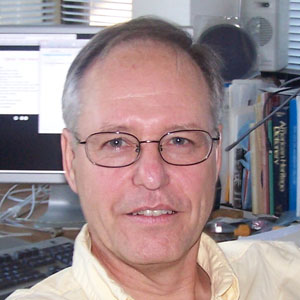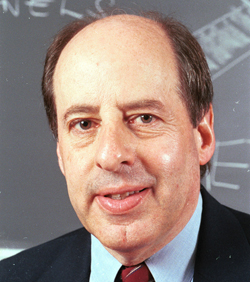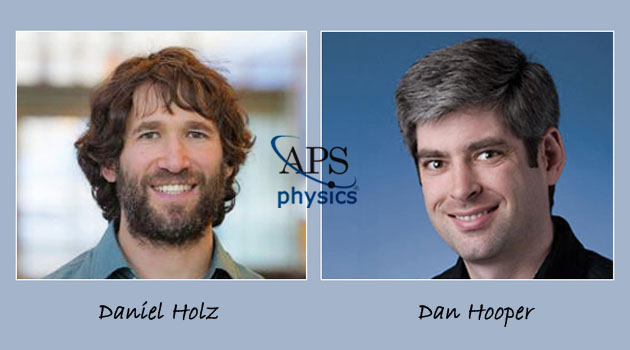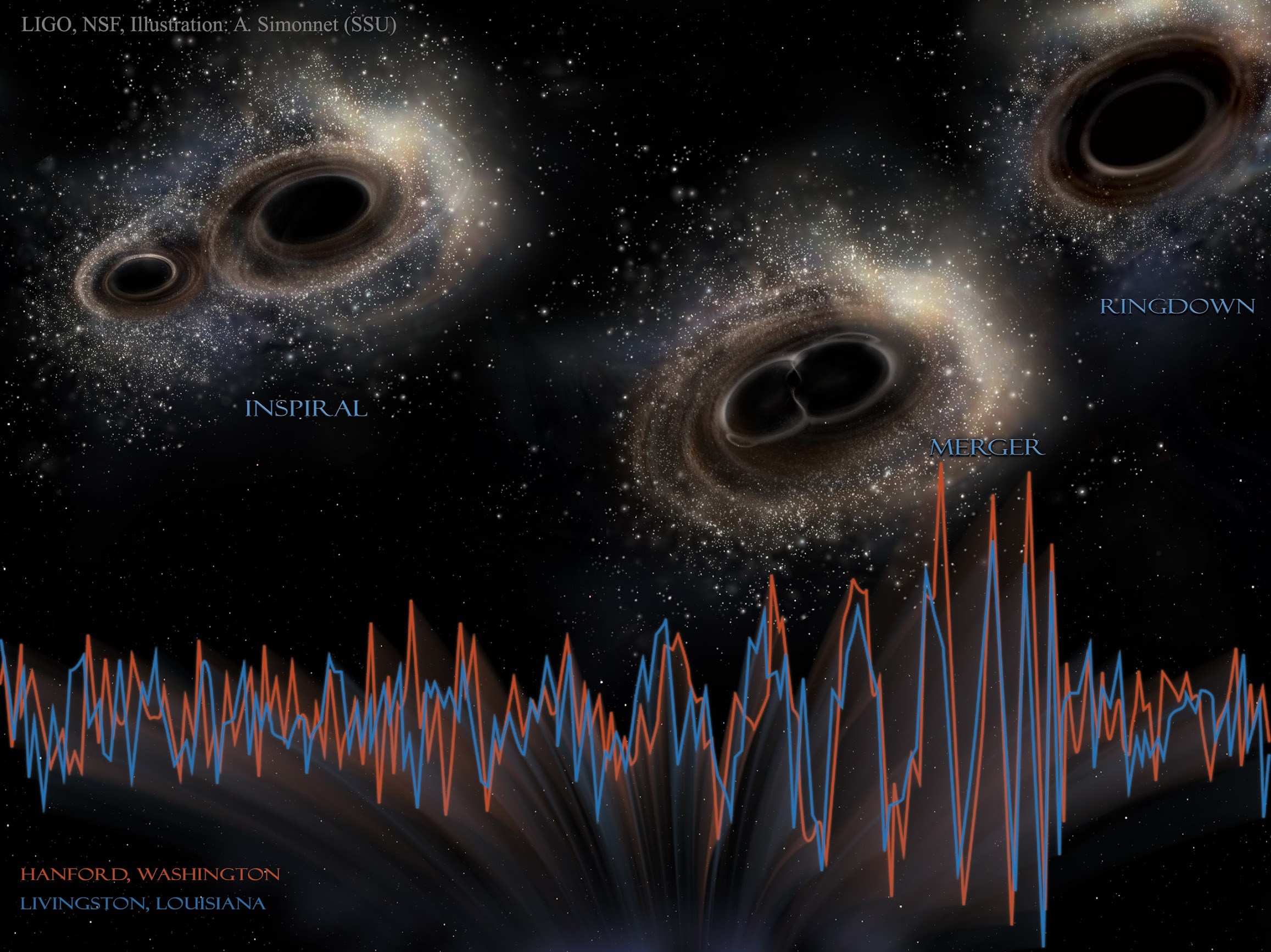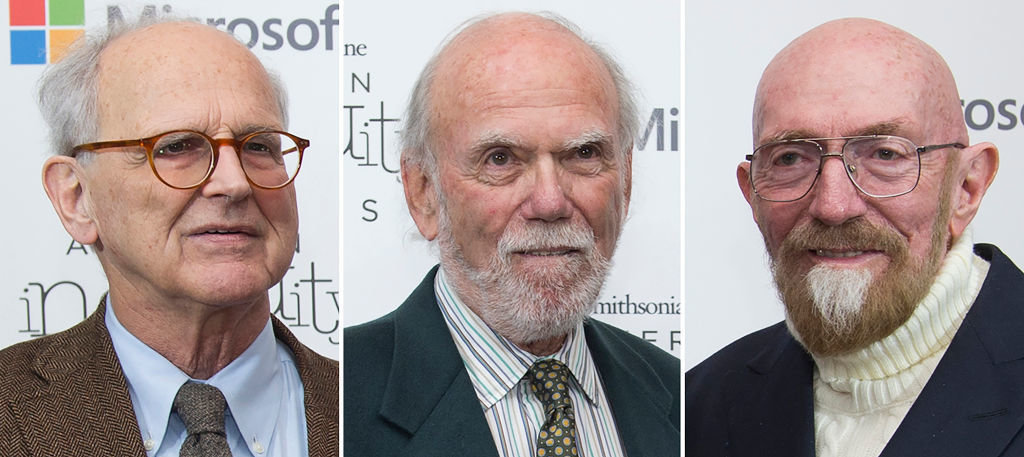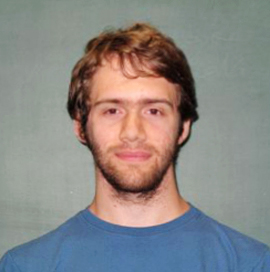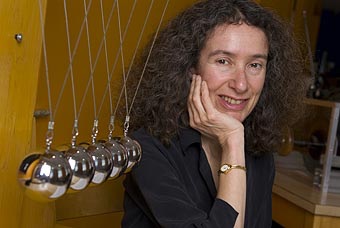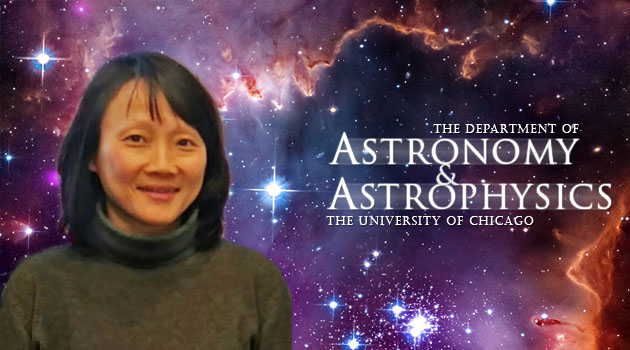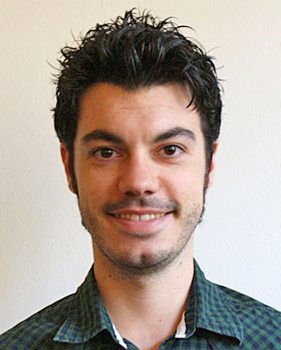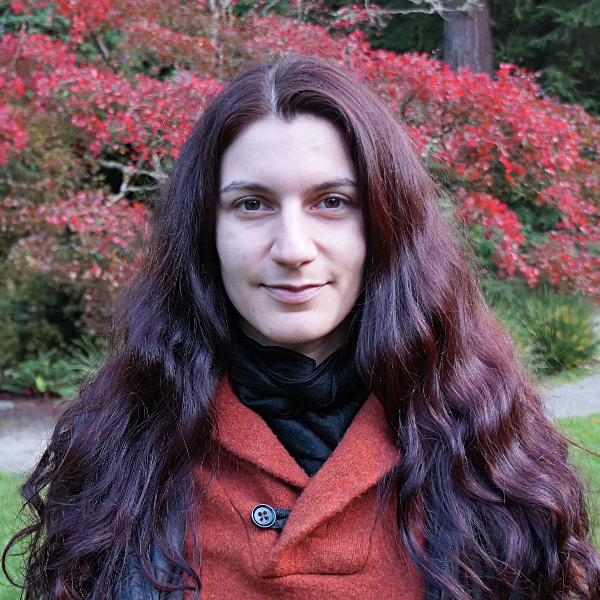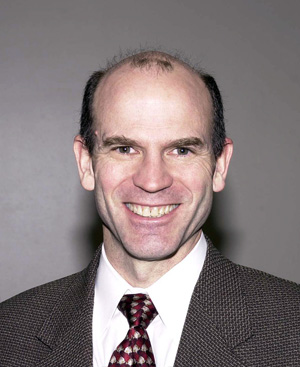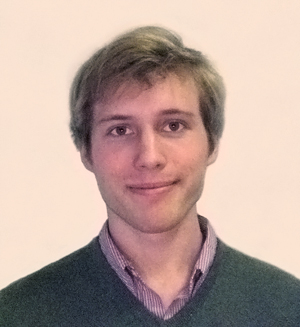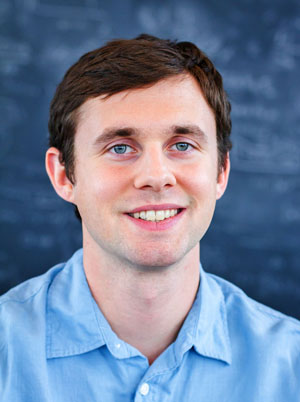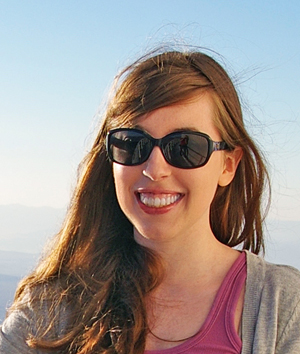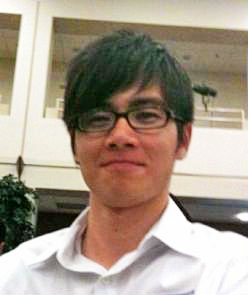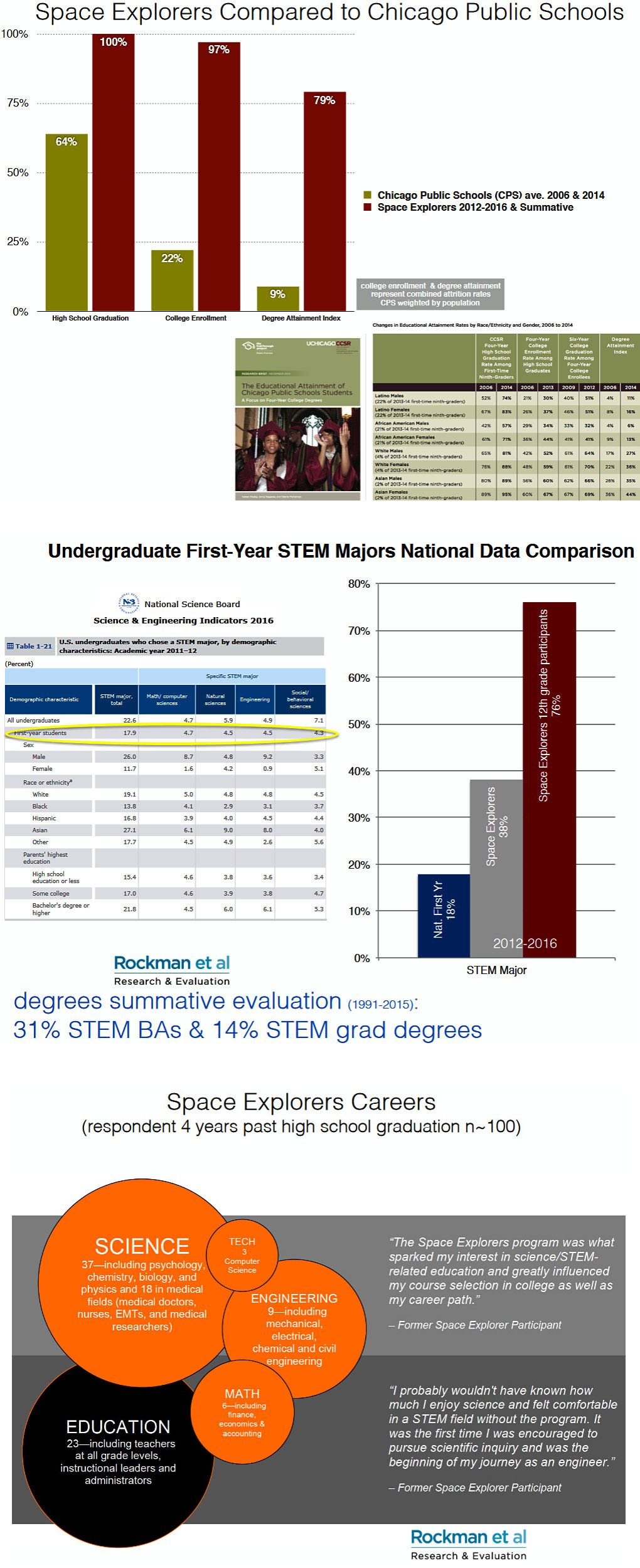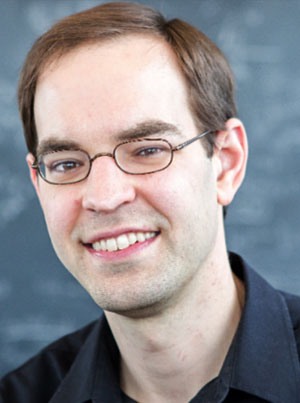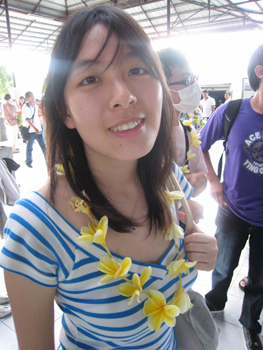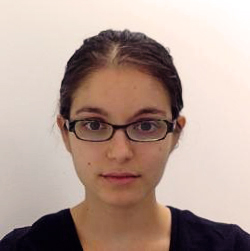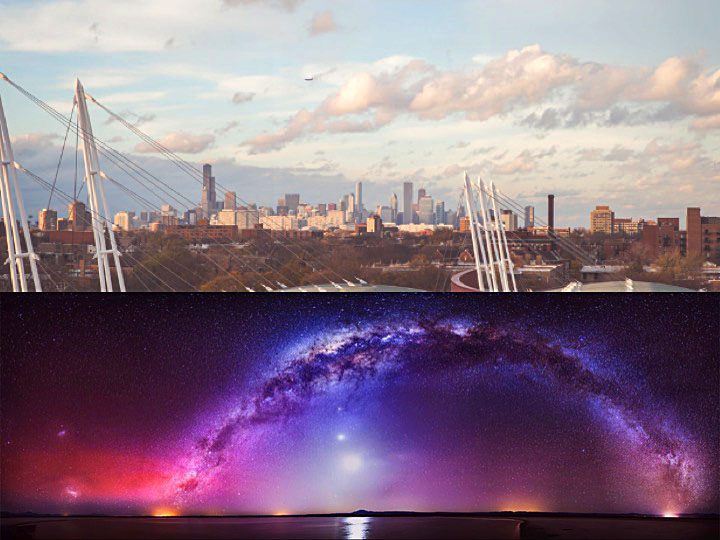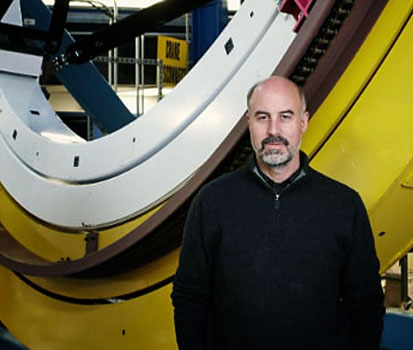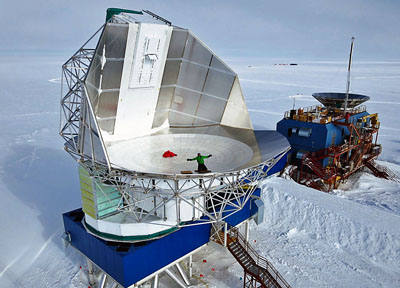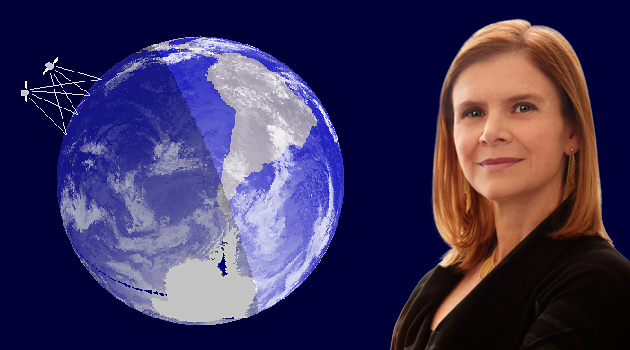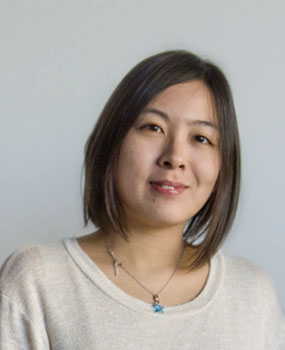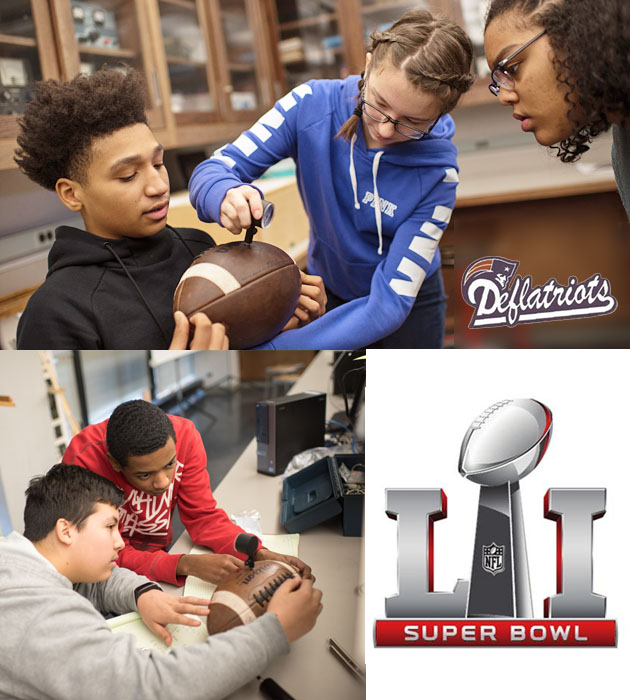 |
 |
 |
 |
 |
 |
 |
 |
 |
 |
 |
 |
|
News
|
Department News: 2017
Congratulations to Stephan Meyer! December 19, 2017 Congratulations to the WMAP experimental team, including Prof. Stephan Meyer, who were awarded the 2018 Breakthrough Prize in Fundamental Physics. The prize recognizes major insights into the deepest questions of the universe and was awarded "For detailed maps of the early universe that greatly improved our knowledge of the evolution of the cosmos and the fluctuations that seeded the formation of galaxies." The prize with be shared among the entire 27-member team, including the following five team leaders: Charles L Bennett; Gary Henshaw; Norman Jarosik; Lyman Page, Jr.; and David N. Spergel. Learn more Related: Department members: Stephan S. Meyer Open research position: Provost's Postdoctoral Fellowship in Astronomy & Astrophysics November 28, 2017 The Department of Astronomy and Astrophysics at The University of Chicago invites applications for the Provost's Postdoctoral Fellowship. We seek to include in our department scientists who will lead creative research programs aligned with the broad interests of our colleagues, and who have a desire to participate in the vibrant intellectual life of the Department and the University. The Fellow will have access to the University's substantial research resources. This fellowship program supports early-career scholars from diverse backgrounds, including groups historically underrepresented in faculty appointments, such as women, black/African American, American Indian or Alaskan Native, and Hispanic/Latino scholars (see Provost's Postdoctoral Fellows Program). Applicants will be early in their careers, with a Ph.D. in hand and without a tenure track appointment. Start date is negotiable, with a target of October 1, 2018. The successful candidate will be appointed as a Provost's Fellow with an initial two-year tenure-track appointment at the rank of Instructor. At the end of the fellowship period, the Fellow will be considered for promotion to Assistant Professor. A competitive salary will be offered, plus benefits. Research funds are also available. Consideration of applications will begin 15 December 2017, and short-listed applicants will be contacted in early 2018 to schedule on-campus interviews. To apply, please submit a cover letter, curriculum vitae with a list of publications and statements of research and teaching interests through the University's Academic Careers website. The University of Chicago is an Affirmative Action / Equal Opportunity / Disabled / Veterans Employer and does not discriminate on the basis of race, color, religion, sex, sexual orientation, gender identity, national or ethnic origin, age, status as an individual with a disability, protected veteran status, genetic information, or other protected classes under the law. For additional information please see the University's Notice of Nondiscrimination. Congratulations to Donald Lamb! November 21, 2017 Dear Colleagues, The American Association for the Advancement of Science has awarded the distinction of Fellow to Don Lamb in recognition of his contributions to science and technology, scientific leadership and extraordinary achievements. Congratulations Don! John E. Carlstrom Subramanyan Chandrasekhar Distinguished Service Professor and Chair Department of Astronomy & Astrophysics Related: Department members: John E. Carlstrom, Donald Q. Lamb Congratulations to Daniel Holz and Dan Hooper! October 20, 2017 The Department professors Daniel Holz and Dan Hooper have been elected to become APS Fellows. Daniel Holz Citation: For contributions to relativistic cosmology including the effect of gravitational lensing of distant SNe on measuring cosmic distances, the use of standard sirens to precisely determine cosmic distances, and his significant role in LIGO discovery of gravitational waves. Nominated by: Division of Gravitational Physics Dan Hooper Citation: For pursuing the identity of dark matter by combining careful analysis of observational data with theoretical ideas from both particle physics and astrophysics. Nominated by: Division of Astrophysics Related: Department members: Daniel E. Holz, Dan Hooper Scientific projects: Laser Interferometer Gravitational-wave Observatory Gravitational Waves Events October 13, 2017 I am pleased to let you know about three special, late-breaking news events that will take place on campus this coming Monday and Tuesday. FIRST, On Monday, October 16th at 09:00 CDT, the National Science Foundation will host a press briefing at the National Press Club in Washington, D.C., bringing together scientists from the Laser Interferometer Gravitational-Wave Observatory (LIGO) and Virgo collaborations, as well as representatives from some 70 observatories. This will be live-streamed and we will set up a live viewing with some of the involved University of Chicago scientists in the lobby of ERC, as well as in room 201 of the Physics Research Center. The press briefing will begin with an overview of new findings from LIGO, Virgo and partners that span the globe, followed by details from telescopes that work with the LIGO and Virgo collaborations to study extreme events in the cosmos. The discovery of gravitational-waves by LIGO opened a new window to the Universe and involved several UChicago scientists. This year's Nobel Prize in Physics recognized three scientists for their contributions to the LIGO detector and the first observation of gravitational waves. SECOND, there will be a special, more technical colloquium on the topic Monday, October 16th at 4:00 p.m. CDT in ERC 161, featuring University scientists Daniel Holz and Joshua Frieman, followed by discussion and comments by Holz, Frieman, Hubble Fellow Dan Scolnic, University Professor Wendy Freedman, and students and postdocs involved in the new findings. Following the discussion there will be a reception in the atrium. THIRD, there will be an event on Tuesday, October 17th from 5:00 - 7:00 p.m. in Kersten Physics Teaching Center (KPTC 120), consisting of about 5 short presentations by graduate students and postdocs and a Q&A/discussion. This will be geared more to the general public and university undergraduates. I encourage you to join us for any of these special gatherings. Rocky Kolb, Dean of the Physical Sciences The University of Chicago Related: Department members: Wendy L. Freedman, Joshua A. Frieman, Daniel E. Holz, Edward ''Rocky'' W. Kolb Department students: Maya Fishbach Scientific projects: Laser Interferometer Gravitational-wave Observatory 2017 Nobel Prize in Physics October 3, 2017 Left to Right: Rainer Weiss, Barry Barish and Kip Thorne, who won the Nobel Physics Prize 2017 for gravitational waves, the Royal Swedish Academy of Sciences announced October 3, 2017 in Stockholm. The 2017 Nobel Prize in Physics has been awarded to Rainer Weiss and to Barry C. Barish and Kip S. Thorne "for decisive contributions to the LIGO detector and the observation of gravitational waves".Molly Riley/AFP/Getty Images Click on the image to enlarge Kip was awarded an honorary Doctor of Science degree from the University of Chicago in 2008. And of course, our very own Daniel Holz is a member of the LIGO collaboration, so we congratulate him as well! Related: Department members: Daniel E. Holz Scientific projects: Laser Interferometer Gravitational-wave Observatory Congratulations to Dr. Michael Florian! October 3, 2017 Congratulations to Michael Florian for successfully defending his Ph.D. dissertation on "Measurements of Morphology in Strongly Lensed Galaxies in the Image Plane". "Michael has been working at the interface of simulations and observations to develop statistical methods to quantify the morphology of strongly lensed galaxies, in the image plane. Such techniques bypass the extensive effort (both in analysis, and additional data) required to model strong lensing systems and generate source plane images. His work in particular sets a standard for upcoming space missions such as JWST, Euclid and WFIRST; he will be leaving us to go to take a NASA Postdoctoral Fellowship working the JWST group at Goddard Space Flight Center." - Michael Gladders, Ph.D. advisor Michael has received a NASA Postdoctoral Fellowship at Goddard Space Flight Center. Related: Department members: Michael D. Gladders Department students: Michael Florian Dr. Ellen Zweibel joins Astro department as visiting faculty for 2017-18 academic year September 25, 2017 Dr. Zweibel is a theoretical astrophysicist with a speciality in Plasma Astrophysics. She is the William L. Kraushaar Professor of Astronomy and Physics and Vilas Distinguished Achievement Professor at the University of Wisconsin-Madison Congratulations to Prof. Hsiao-Wen Chen! July 26, 2017 Dear Colleagues, It is my great pleasure to announce that Professor Hsiao-Wen Chen has been promoted to Full Professor. Please join me in congratulating Professor Chen! Angela V. Olinto, Homer J. Livingston Distinguished Service Professor and Chair Department of Astronomy & Astrophysics Related: Department members: Hsiao-Wen Chen, Angela V. Olinto Congratulations to Dr. Alessandro Manzotti! July 24, 2017 Congratulations to Alessandro Manzotti for successfully defending his Ph.D. dissertation on "Unveiling the early Universe: delensing the Cosmic Microwave Background with galaxy surveys". "Alessandro led the team that carried out the first 'de-lensing' of the polarization in the cosmic microwave background. Using data from the South Pole Telescope, the team used software to undo what billions of years of propagation through the clumpy universe has done: distorted the pattern of polarization. This first demonstration is the harbinger of what will ultimately become an essential tool in analyses of future SPT CMB-Stage 4 data." - Scott Dodelson, Ph.D. advisor Alessandro has received a Lagrange Fellow position at the Institut d'Astrophysique de Paris. Related: Department members: Scott Dodelson Department students: Alessandro Manzotti Scientific projects: South Pole Telescope Congratulations to Dr. Laura Mocanu! July 21, 2017 Congratulations to Laura Mocanu for successfully defending her Ph.D. dissertation on "Measuring the cosmic microwave background gravitational lensing potential and its power spectrum with SPTpol". "Monica has make many important contributions to the analysis of South Pole Telescope CMB data. For her thesis she has used SPTpol temperature and polarization data to produce the most sensitive CMB lensing reconstruction of the mass distribution in the universe, paving the wave for SPT-BICEP B-mode delensing and other cosmological analysis." - John Carlstrom, Ph.D. advisor Laura has received a Postoctoral fellowship at the University of Oslo. Related: Department members: John E. Carlstrom Department students: Laura Mocanu Scientific projects: South Pole Telescope John Carlstrom becomes the new Chair of the Department of Astronomy & Astrophysics July 13, 2017 I am very pleased to share the news of Department Chair appointment in the Department of Astronomy and Astrophysics. Effective October 1, 2017, John Carlstrom will become the Chair of Astronomy and Astrophysics. His scientific excellence will serve the department well in the coming years. I thank Angela Olinto for her excellent service as Chair of Astronomy and Astrophysics. I look forward to working closely with John as he takes on leadership of the Department. Please join me in congratulating him on this appointment. Rocky Kolb, Deanof the Physical Sciences Division Related: Department members: John E. Carlstrom, Edward ''Rocky'' W. Kolb, Angela V. Olinto Congratulations to Dr. Dylan Hatt! July 7, 2017 Congratulations to Dylan Hatt for successfully defending his Ph.D. dissertation on "On the Population II Distance Scale: The Tip of the Red Giant Branch Distances to Local Galaxies". "Currently there is a tension in values of the Hubble constant as measured in the local universe compared with estimates from the cosmic microwave background. Dylan Hatt's thesis uses an alternative method to classical Cepheids for measuring the local distance scale, a technique that holds promise for resolving the current disagreement.." - Wendy L. Freedman, Ph.D. advisor "Dylan's thesis work explores a technique for measuring distances to galaxies that is independent of the Cepheid distance scale. The thesis work involved new measurements of many thousands of giant-branch stars in several Local Group galaxies. Ultimately the project will help refine the distance scale and the value of the Hubble constant." - Richard G. Kron, Ph.D. advisor Related: Department members: Wendy L. Freedman, Richard G. Kron Department students: Dylan Hatt Congratulations to Dr. Sean Mills! July 7, 2017 Congratulations to Sean Mills for successfully defending his Ph.D. dissertation on "Detecting and Interpreting the Dynamical Evolution of Transiting Multiplanet Systems". "Mills' thesis is a tour-de-force of planetary dynamics. Using data from NASA's Kepler mission, Mills explored sub-Neptunes in resonant orbits, Mars-mass planets in dynamically packed orbits, and gas giants torquing each other's orbits. To top it off, Mills has interpreted statistical trends in their orbits and their atmospheres that point to planetary evolution from their formation to today." - Daniel Fabrycky, Ph.D. advisor Sean has received a Postdoctoral Scholar position in Astronomy, California Institute of Technology. Related: Department members: Daniel Fabrycky Department students: Sean M. Mills Congratulations to Dr. Megan Bedell! July 7, 2017 Congratulations to Megan Bedell for successfully defending her Ph.D. dissertation on "Illuminating the Origins of Planets with Solar Twins". "Megan's work has dramatically advanced the state-of-the-art for using stellar abundances to understand the formation and diversity of planets. In particular, her remarkable discovery of the chemical homogeneity of Sun-like stars has implications for the compositions of rocky planets beyond our solar system and their suitability for life. Megan also led the observations and analyses for an international exoplanet search program that has already resulted in the discovery of multiple planets." - Jacob L. Bean, Ph.D. advisor Megan has received a Flatiron Research Fellow position at the Simons Center for Computational Astrophysics. Related: Department members: Jacob L. Bean Department students: Megan Bedell Cameron Liang wins a Harper Dissertation Fellowship June 16, 2017 Congratulations to Cameron Liang for winning a William Rainey Harper Dissertation Fellowship for the 2017-18 academic year. The intent of the award is two-fold: to recognize significant achievement and to facilitate completion of the doctoral degree. This award, one of the University of Chicago's highest honors, recognizes significant achievement during graduate studies and professional promise. Congratulations Cameron! Related: Department members: Andrey V. Kravtsov Department students: Cameron Jia Liang Megan Bedell was awarded the Josephine de Karman Fellowship June 15, 2017 This 2016-2017 academic year Megan Bedell was awarded the Josephine de Karman Dissertation Fellowship for her work "Illuminating the Origins of Planets with Solar Twins". Established in 1954 by the late Dr. Theodore von Karman, world renowned aeronautics expert and teacher and first director of the Guggenheim Aeronautical Laboratory at the California Institute of Technology, in memory of his sister, Josephine, who died in 1951. The purpose of this fellowship program is to recognize and assist students whose scholastic achievements reflect professor von Karmans high standards. Congratulations Megan! Related: Department members: Jacob L. Bean Department students: Megan Bedell Space Explorers Program Evaluation and Experiments Featured at the 2017 National Science Teachers Association (NSTA) Meeting Los Angeles, CA June 15, 2017 Randall H. Landsberg presented "Space Explorers: 25 Years of Inner-city Students Out of School Time Explorations" as part of the "mission possible" thread at the NSTA national conference. The talk included data on how students in the program are out preforming their peers and exemplar, hands-on, inquiry based experiments. The experiments both involved measurements but in very different realms: the size of the universe and the response rates of rods compared to cones in the human eye. Presentation Abstract: Since 1991 Space Explorers has offered first generation, low income inner-city students and university astrophysics researchers the opportunity to explore together (with over one hundred contact hours a year). An external evaluation probed the impacts of this program on the hundreds of students and instructors involved. We will examine the evaluation findings, which map well to the recent NRC study on out of school time programs. We will also explore some of our favorite lab activities, hear about taking students to Yerkes Observatory for residential science institutes, and discuss best practices for university and community based organization partnerships. Take home new ideas for student labs and partnerships. Related: Department members: Randall H. Landsberg Congratulations to Prof. Daniel Fabrycky! June 14, 2017 I am very pleased to inform your that Daniel Fabrycky has won the Division of Dynamical Astronomy of the AAS inaugural Early Career Award, the Vera Rubin Prize. We are very happy for Daniel and wish him the very best for a successful future career. Congratulations Daniel! Angela V. Olinto, Homer J. Livingston Distinguished Service Professor and Chair Department of Astronomy & Astrophysics Related: Department members: Daniel Fabrycky, Angela V. Olinto Congratulations to Laura Kreidberg and Jacob Bean! June 13, 2017 Former graduate student Laura Kreidberg has won the best PhD prize from the International Astronomical Union (IAU) for her PhD Thesis "Glimpses of Faraway Places: Intensive Atmosphere Characterization of Extrasolar Planets" (PhD Advisor: Prof. Jacob Bean). Last year the IAU announced the creation of a new award, the IAU PhD Prize, to recognise outstanding scientific achievement in astronomy by PhD students around the world. The IAU is the international astronomical organisation that brings together more than 10 000 professional astronomers from almost 100 countries. Its mission is to promote and safeguard the science of astronomy in all its aspects through international cooperation. The IAU also serves as the internationally recognised authority for assigning designations to celestial bodies and the surface features on them. Founded in 1919, the IAU is the world's largest professional body for astronomers. Related: Department members: Jacob L. Bean Department students: Laura Kreidberg Congratulations to Dr. Hsin-Yu Chen! June 12, 2017 Congratulations to Hsin-Yu Chen for successfully defending her Ph.D. dissertation on "Multi-messenger Astronomy with Advanced LIGO-Virgo". "Hsin-Yu's work is helping set the stage for the new era of gravitational-wave astronomy. She has played an active role within the LIGO collaboration in the analysis of our first detections, while also becoming a leader in the field of multi-messenger astronomy." - Daniel E. Holz, PhD advisor Hsin-Yu has received a postdoc position at the Black Hole Initiative (Harvard). Related: Department members: Daniel E. Holz Department students: Hsin-Yu Chen Congratulations to Maya Fishbach for winning an NSF Graduate Research Fellowship! June 6, 2017 The NSF's Graduate Research Fellowship program, honors and supports outstanding graduate students who are pursuing research-based degrees in science, technology, engineering, mathematics, and social science disciplines. Maya's research is focused on gravitational wave astronomy and she is currently working with Prof. Daniel Holz on interpreting gravitational wave data to study the population of black hole binaries. Related: Department members: Daniel E. Holz Department students: Maya Fishbach Major in Astrophysics May 19, 2017 On May 16 the College Council unanimously approved a proposal from the Astronomy and Astrophysics Department to create an undergraduate Major in Astrophysics. The Astronomy and Astrophysics Department is introducing six new courses for the Major program that will be taken in addition to required courses from across the Physical Sciences. Astrophysics Majors will gain a broad knowledge of the universal, physical laws spanning scales from the nuclear to cosmological, familiarity with computational methods and statistical data analysis, and experience with experimental and observational techniques through participation in faculty-led research projects. The aim is to prepare students for success in graduate school by ensuring they have mastery of core science knowledge and in-depth understanding of astrophysics, the ability to code and to evaluate and analyze data, and the skills of working productively in a research collaboration. Students will have the option of choosing a B.A. or B.S. program and can start from either the Physics or Chemistry introductory sequences to complete the requirements for the Major. The new program will officially begin in Autumn Quarter 2018, but most of courses in the Major will be available starting in the 2017-2018 academic year. For information about the Major program, contact Julia Brazas. Related: Department members: Julia Borst Brazas, Richard G. Kron, Angela V. Olinto Congratulations to Prof. Peter Vandervoort! April 27, 2017 Dear A&A community, It gives me great pleasure to announce that Peter Vandervoort (AB'54, SB'55, SM'56, PhD'60), Professor Emeritus in the Department of Astronomy and Astrophysics and the College, has been awarded the 2017 Norman Maclean Faculty award. Given for the first time in June 1997, the Norman Maclean Faculty Award honors emeritus or very senior faculty for extraordinary contributions to teaching and to the student experience of life within the University community. Please join me in congratulating Peter for receiving this well-deserved honor. CONGRATULATIONS PETER! Angela V. Olinto, Homer J. Livingston Distinguished Service Professor and Chair Department of Astronomy & Astrophysics Related: Department members: Angela V. Olinto, Peter O. Vandervoort Congratulations to Prof. Joshua Frieman! April 27, 2017 Congratulations to Prof. Joshua Frieman for his election as Vice Chair of the Executive Committee of the Division of Astrophysics of the American Physical Society. The Division of Astrophysics (DAP), organized in 1970, engages in observational and theoretical investigation that relates to the study of physical processes in stars and other discrete galactic sources, galactic structure and evolution, the early history and evolution of the Universe, and the Sun and solar activity. Division interests also have significant overlap with other APS divisions such as Particles and Fields, Nuclear Physics, and Plasma Physics. Related: Department members: Joshua A. Frieman EUSO-SPB has been launched April 24, 2017 EUSO-SPB launched today from Wanaka, New Zealand. The EUSO-SPB instrument is carried by a superpressure balloon designed and launched by NASA's Columbia Scientific Balloon Facility. EUSO-SPB emerged from the JEM-EUSO project and uses the same principle of harnessing the earth's atmosphere to detect ultra high-energy cosmic rays. EUSO-SPB will observe the nitrogen fluorescence and Cherenkov photons produced by extensive air showers. Related: Department members: Angela V. Olinto Scientific projects: Extreme Universe Space Observatory on a Super Pressure Balloon The Halo Boundary of Galaxy Clusters in SDSS April 24, 2017 A cluster formed in a Lambda-Cold Dark Matter simulation of structure formation. Prof. Andrey Kravtsov has participated in a recent study, which presents strong evidence for the physical edge of galaxy clusters using public data from the Sloan Digital Sky Survey.Credit: Benedikt Diemer, Philip Mansfield Click on the image to enlarge The existence of such physical edges associated with sharp density drops due to the density caustics formed by accreting matter was predicted by the Department members Benedikt Diemer and Andrey Kravtsov in 2014, as part of Diemers PhD research. In a follow-up study, Diemer and Kravtsov have shown that the-edges can be considered to be natural physical boundary of dark matter halos that provide the gravitational "back-bone" for the structures observed in the galaxy distribution. In the recent study, co-led by Eric Baxter - a former graduate student and currently a postdoctoral fellow at the University of Pennsylvania - the density drop associated with the halo edges was detected in the galaxy distribution around cluster centers. Cosmological simulations show that massive galaxy clusters we see today have been accreting galaxies into their deep gravitational potential over the cosmic time. The process of galaxies "falling into" the cluster's potential well is a fairly clean and universal process that depends only on basic quantities of the cluster such as mass and accretion rate. One of the result of this simple picture is a sharp feature in the number density of galaxies around clusters - an imprint of the caustic formed by the infalling galaxies as they reach the first apocenter of their orbit, or the "edge" of the galaxy cluster. Researchers called the distance of the edge the "splashback" radius, as galaxies literally "splashing back" to that radius after they accrete onto cluster. Together with collaborators in UPenn and UIUC, Andrey Kravtsov examined distribution of galaxies around a sample of clusters identified within the SDSS. The existence of the edge in the galaxy distribution within clusters was confirmed. In addition, the analysis revealed that properties of galaxies around cluster are sensitive to existence of the edge. Outside the splashback radius, the mix of red and blue galaxies was approximately independent of the distance from the cluster center, while inside the splashback radius the mix is abruptly changes towards a larger fraction of red galaxies. This indicates that the edge is a real dynamical feature and that majority of galaxies get transformed by the cluster environment from blue to red in less than one orbital period. Related references:
Related: Department members: Andrey V. Kravtsov Department students: Philip Mansfield Scientific projects: Sloan Digital Sky Survey The Event Horizon Telescope's historic quest April 13, 2017 This week the South Pole Telescope joined a global network of telescopes to take observations which aim to capture the highest-resolution image ever taken of the supermassive black hole at the center of the Milky Way. Read more:
Related: Department members: Bradford A. Benson, John E. Carlstrom Scientific projects: South Pole Telescope Prof. Angela Olinto has been awarded a NASA grant for "Concept Study of the Probe Of Extreme Multi Messenger Astrophysics (POEMMA)" March 20, 2017 A research team led by Prof. Angela Olinto has been awarded a NASA grant for "Concept Study of the Probe Of Extreme Multi Messenger Astrophysics (POEMMA)". The team will define the instrument and mission details necessary for the Probe Of Extreme Multi-Messenger Astrophysics (POEMMA) to enable, for the first time, charged particle astronomy with ultra-high energy cosmic rays (UHECRs), and to discover cosmogenic tau neutrinos as well as Ultra-High Energy Neutrinos of other flavors. POEMMA will make the first all-sky survey of UHECRs to reveal the sources of these extreme energy particles. UHECRs result from extreme conditions in the extragalactic universe that are not presently understood. POEMMA will combine the well-developed Orbiting Wide-field Light-collectorsi (OWL) concept with the recently proposed CHerenkov from Astrophysical Neutrinos Telescope (CHANT) concept to form a multi-messenger probe of the most extreme environments in the universe. POEMMA will detect UHECRs through the observation of particle cascades produced by the interaction of UHECRs with the Earth's atmosphere. Particle cascades excite nitrogen molecules in the atmosphere, which fluoresce in the ultraviolet (UV). Ultra-fast UV cameras record the fluorescence light produced by the particle cascades. The fluorescence technique has been perfected by the leading ground-based UHECR observatories, like the Pierre Auger Observatory and will begin to be observed from space observations shortly with EUSO-SPB. The team will receive funds for an 18-month comprehensive study. Related: Department members: Angela V. Olinto Scientific projects: Extreme Universe Space Observatory on a Super Pressure Balloon, Pierre Auger Observatory, Probe of Extreme Multi-Messenger Astrophysics Dr. Maria A. Weber has been Awarded a NSF Astronomy & Astrophysics Postdoctoral Fellowship February 20, 2017 Dr. Maria A. Weber has been awarded a NSF Astronomy & Astrophysics Postdoctoral Fellowship (AAPF) for her proposal "Simulations of Magnetic Self-Organization and Flux Emergence in Low-Mass Stars Across the Tachocline Divide". The NSF AAPF is a prized fellowship for highly qualified, recent doctoral scientists to carry out an integrated program of independent research and education. The program is intended to recognize early-career investigators of significant potential and to provide them with experience in research and education that will establish them in positions of distinction and leadership in the community. Dr Weber's research will investigate the generation and emergence of magnetism in both fully convective M dwarfs and those with an imposed tachocline. It will be done in collaboration with Prof. Robert Rosner and Prof. Fausto Cattaneo, and Dr. Lucianne Walkowicz (Adler). Dr Weber's education and outreach program will seek to increase public science literacy by inspiring scientific communication through 3D visualizations and training students in the skills necessary to deliver impactful public presentations. She will work in Adler's Space Visualization Lab (SVL) to create visualizations of her models for use in planetariums across the country. She will use 3D printing technology and virtual reality platforms as novel approaches to render her model outputs in a transportable way, benefiting tactile learners and reaching underserved groups through Adler's Galaxy Ride and UChicago's Life Long Learning (L3) program. At UChicago, Dr. Weber will also develop a new program called SciComm Academy to mentor graduate and advanced undergraduate students in the design and delivery of public scientific talks about their research. Related: Department members: Fausto Cattaneo, Randall H. Landsberg, Robert Rosner Diversity, Climate and Inclusion February 17, 2017 The Diversity Committee is working to establish a public web presence that both details the department's commitment to diversity, and details activities undertaken by the department and the committee to promote diversity. Part of our attention and effort is focused on the climate of the department - a welcoming and inclusive climate is necessary (though not sufficient) for diversity. We are currently learning a great deal - from scientific literature that addresses issues of diversity, climate and inclusion, through to on-campus resources and efforts, from companion departments in the PSD, efforts than span the physical sciences, and organisations and events that are university wide. We are also tapping into broader resources, from professional organisations that intersect with us. Eventually, much of this information will be archived and accessible through the diversity webpage; this should be in place by the end of the academic year 2017. In the meantime, here are some initial links to academic papers of interest, resources from across the university, and beyond. Also, stay tuned for another Tuesday pizza lunch talk on a diversity-related topic on February 21st. Department Diversity Committee Papers:
University Resources:
Broader Resources: Related: Department members: Hsiao-Wen Chen, Daniel Fabrycky, Michael D. Gladders, Daniel E. Holz, Stephan S. Meyer Department students: Gourav Khullar Hsin-Yu Chen has been selected for a Cronin Fellowship February 15, 2017 Please join me in congratulating Hsin-Yu Chen who has been selected for a Cronin Fellowship for 2017. The James Cronin Graduate Student Fellowship honors Professor Cronin though support of exceptional Ph.D. candidates. The Cronin Fellowship will support Hsin-Yu's research work up to the end of Summer quarter 2017, when she is expected to graduate. Congratulations Hsin-Yu! Angela V. Olinto, Homer J. Livingston Professor and Chair Department of Astronomy & Astrophysics Related: Department members: Daniel E. Holz, Angela V. Olinto Department students: Hsin-Yu Chen Deflategate: Cold Wet Footballs, Ideal Gas Laws and Accusations of Cheating February 8, 2017 Just in time for Super Bowl LI, students in the Space Explorers Program examined the physics and media frenzy of Deflategate. During the 2015 AFC championship game, NFL officials discovered that the pressure in several footballs used by the New England Patriots had decreased below permissible levels. This sparked a national controversy known as "Deflategate". The NFL (as well as many enemies the four-time Super Bowl champions Patriots had made in the football world) argued that the pressure drop could only be caused by cheating, especially because Tom Brady favors underinflated balls. (note: each team controls 12 footballs used when they are on offense mandated to be between 12.5 and 13.5 psi ). Patriots' fans argued that the drop was caused either by well known laws of physics, or by an elaborate NFL conspiracy. Twenty-eight (28) high school students in KICP's Space Explorers program put these arguments to the test. Over the course of two weeks, students critically evaluated over a dozen arguments made by both sides, ranging from court documents, to college lectures, to tweets. Despite the strong opinions, contradictory claims, and often factually incorrect information found in these arguments, the Space Explorers managed to identify the critical questions that needed to be resolved to determine if Deflategate could be caused by purely innocuous physics and designed an experiment to address them. Their experiment revolved around measuring the effect that wetness had on the rate at which cold footballs warm up and increase in pressure. To date their results are inconclusive. One trial found nothing suspicious about the pressure drop, and a second could not explain the low pressures in the Patriots' footballs. The Space Explorers themselves are split down the middle about how to interpret their results and will debate the best way to resolve this difference at the pre-Super Bowl Saturday class. Related: Department members: Randall H. Landsberg Department students: Philip Mansfield |

